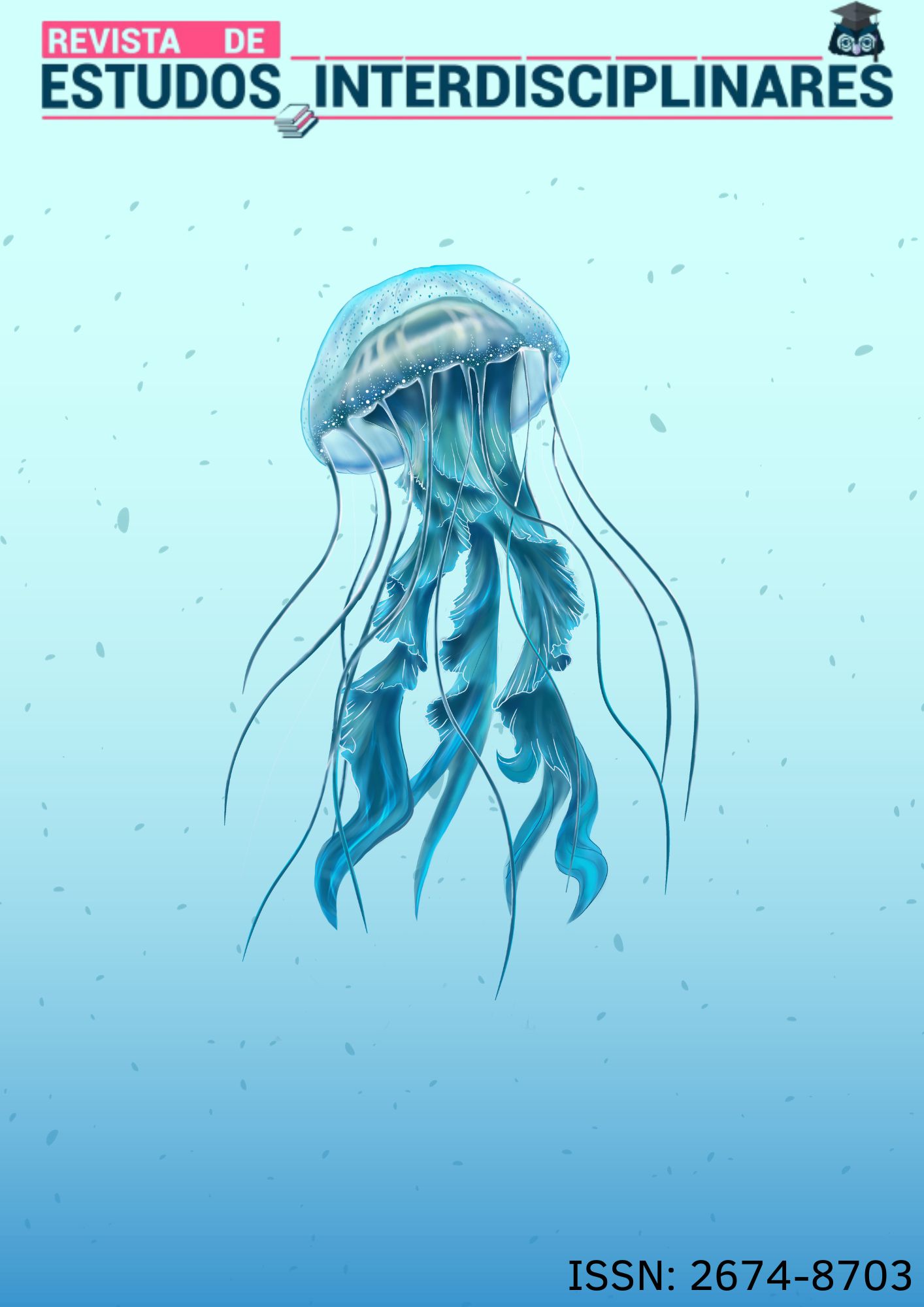STORYTELLING FOR UNDERSTANDING MATHEMATICAL CONCEPTS IN THE FORMATION OF A PRODUCT'S SELLING PRICE
Visualizações: 133DOI:
https://doi.org/10.56579/rei.v5i5.853Keywords:
Story Telling, Storytelling, educational videos, MathematicsAbstract
This study aimed to analyze the possible contributions of a video narrative to the understanding of mathematical concepts in calculating the selling price of a product in an agribusiness. The goal was to characterize this mathematical situation, describing difficulties and limitations arising from the use of mathematical content, which supported the development of the narrative for the promotion of a pedagogical action in the enterprise. Methodologically, the research was framed in a qualitative approach. The creation of the narrative followed the phases of pre-production, production, and post-production, being subsequently validated by expert judges and the target audience. The presented narrative detailed the context of the enterprise with the integration of sound and visual elements to dynamically present mathematical calculations. This material was considered by judges as suitable for the proposal, with the potential to meet users' needs, pedagogical potential, and an appropriate duration. Members of the agribusiness stated that the material helped in understanding the formation of the selling price of a product. In conclusion, this educational material is a potential resource for learning mathematical content in the formation of the selling price of a product, contributing to the appropriation of this knowledge and consequently strengthening enterprise management.
Downloads
References
AMARAL, R. B. Vídeo na Sala de Aula de Matemática: Que Possibilidades? .Educação Matemática em Revista. n. 40, p. 38-46, novembro, 2013. Disponível em: http://www.sbem.com.br/revista/index.php/emr/article/view/298/pdf. Acesso em: 14 jun. 2019.
BOGDAN, R.; BIKLEN, S. Investigação qualitativa em educação: uma introdução à teoria e aos métodos. Porto: Porto Editora, 1994.
DALFOVO, M. S.; LANA, R. A.; SILVEIRA, A. Métodos quantitativos e qualitativos: um resgate teórico. Revista Interdisciplinar Científica Aplicada, Blumenau, v.2, n.4, p.0113, Sem II. 2008 ISSN 1980-7031
D’AMBROSIO, U. Etonomatemática- elo entre as tradições e a modernidade. 5ª ed. Belo Horizonte: Autêntica Editora, 2013.
D’AMBROSIO, U. O Programa Etnomatemática: uma síntese. Acta Scientiae, Canoas, v.10, n.1, p. 07- 16, jan./jun.2008. Disponível em: http://www.periodicos.ulbra.br/index.php/acta/article/view/74/66. Acesso em: 15 Abr. 2019.
FLEMING, S. E.; REYNOLDS, J.; WALLACE, B. Lights... camera... action! a guide for creating a DVD/video. Nurse Educator.Vol. 34, No. 3, pp. 118-121. 2009. Disponível em: https://doi.org/10.1097/NNE.0b013e3181a0270e. Acesso em: 01 nov. 2020. DOI: https://doi.org/10.1097/NNE.0b013e3181a0270e
MADDALENA, T.L. SANTOS, E. Digital Storytelling na formação de professores.
REVISTA EDUCAÇÃO E CULTURA CONTEMPORÂNEA VOLUME 16, NÚMERO 43, 2019. PPGE/UNESA. RIO DE JANEIRO. HTTP://DX.DOI.ORG/ 10.5935/2238-1279.20190015
MENEGHETTI, R. C. G. A educação matemática no contexto da economia solidária. Curitiba: Appris, 2016.
MENEGHETTI, R.C. G.; GIAQUINTO, D. F. Economia Solidária, Etnomatemática e Andragogia no contexto de um Banco Comunitário. Com a Palavra o Professor, Vitória da Conquista, v. 1, n. 1, jan. – abr. 2017. Disponível em: http://revista.geem.mat.br/index.php/CPP/article/view/156. Acesso em: 10 Abr. 2019.
MENEGHETTI, R.C. G.; GEISA, Z.S.; AZEVEDO, M. F.; KUCINSKAS, R. Sobre três processos educativos em Educação Matemática para empreendimentos em Economia Solidária. Revista Reflexão e Ação, Santa Cruz do Sul, v.21, n1, p. 169-195, jan/jun. 2013. Disponível em: https://online.unisc.br/seer/index.php/reflex/article/view/3417. Acesso em: 12 mai. 2019.
MENEGHETTI, R.C.G.; SILVA, G.Z.S.; FREITAS, M.F.A.B. Etnomatemática e a utilização da calculadora no contexto Empreendimentos Econômicos Solidários. Revista Latinoamericana de Etnomatemática, Vol. 11, No. 2, maio-agosto de 2018.
OECHSLER, V. Vídeos e Educação Matemática: um olhar para dissertações e teses. In: Encontro Brasileiro de estudantes de Pós- Graduação em Educação Matemática. 19. 2015, Juiz de Fora. Anais [...]. Juiz de Fora, 2015.
OLIVEIRA, D.S.L. Storytelling como estratégia de ensino no contexto da educação profissional e tecnológica. 2020. Dissertação (Mestrado Profissional em Educação Profissional e Tecnológica – PROFEPT)- Instituto Federal de Educação, Ciência e Tecnologia do Rio Grande do Sul – Campus Porto Alegre.
PALACIOS, F.; TERENZZO, M. O Guia Completo do Storytelling . Rio de Janeiro: Alta Books, 2016.
ROBIN, B.. The Educational Uses of Digital Storytelling. In C. Crawford, R. Carlsen, K. McFerrin, J. Price, R. Weber & D. Willis (Eds.), Proceedings of SITE 2006--Society for Information Technology & Teacher Education International Conference (pp. 709-716). Orlando, Florida, USA: Association for the Advancement of Computing in Education (AACE). Retrieved February 9, 2022 from https://www.learntechlib.org/primary/p/22129/.
ROSA, A. A. C. As Tecnologias Digitais de Informação e Comunicação (TDIC) e o ensino a distância: reflexões para estudos de currículo. The ESPecialist: Descrição, Ensino e Aprendizagem, v.38 N.2 ago-dez 2017. Disponível em: https://revistas.pucsp.br/esp/article/view/33152/24407. Acesso em: 12 mai. 2019. DOI: https://doi.org/10.23925/2318-7115.2017v38i2a8
SANTOS, R. P. ; LIMA, A. G. ; MARTINS, E. C. ; CARVALHO, J. G. Etnomatemática e economia solidária: aproximações possíveis e necessárias para processos educativos. In: III Congresso de Pesquisadores de Economia Solidária, 2021, SÃO CARLOS. Anais do III Congresso de Pesquisadores de Economia Solidária, 2021. Disponível em: https://abpes.org/anais-iii-conpes/. Acesso em: 05 de janeiro de 2022.
SANTOS, M. P. Ensinando e Aprendendo Geometria Plana Através de Vídeo Educativo: Algumas Sugestões de Atividades Didáticas para Aulas de Matemática no Ensino Médio. Revista Brasileira de Educação Científica e Tecnológica, v. 7, n. 3, p. 27 43, 2014. DOI: https://doi.org/10.3895/S1982-873X2014000300003
SILVA, P.J.; LIMA, I.; GITIRANA, V. ENSINAR MATEMÁTICA À LUZ DE UMA PERSPECTIVA CRÍTICA: algumas reflexões. Ensino da Matemática em Debate (ISSN: 2358-4122), São Paulo, v. 6, n. 3, p. 207-228, 2019. DOI: https://doi.org/10.23925/2358-4122.2019v6i3p180-198
TEIXEIRA, E.; MOTA, V. M.S.S. Tecnologias educacionais em foco. São Paulo- SP: Difusão, 2011.
TENORIO, N.; FORNO, L.F.D.; FACCIN, T.C.; GOZZI, F. Uso da Storytelling para a construção e o compartilhamento do conhecimento na educação. Educação por escrito, Porto Alegre, v. 11, n. 2, p. 1 -10, jul.-dez. 2020 | e- 30601
Downloads
Published
How to Cite
Issue
Section
License
Copyright (c) 2023 Interdisciplinary Studies Journal

This work is licensed under a Creative Commons Attribution 4.0 International License.
The Journal of Interdisciplinary Studies adopts the Creative Commons Attribution 4.0 International License (CC BY 4.0), which allows for sharing and adapting the work, including for commercial purposes, provided proper attribution is given and the original publication in this journal is acknowledged.


